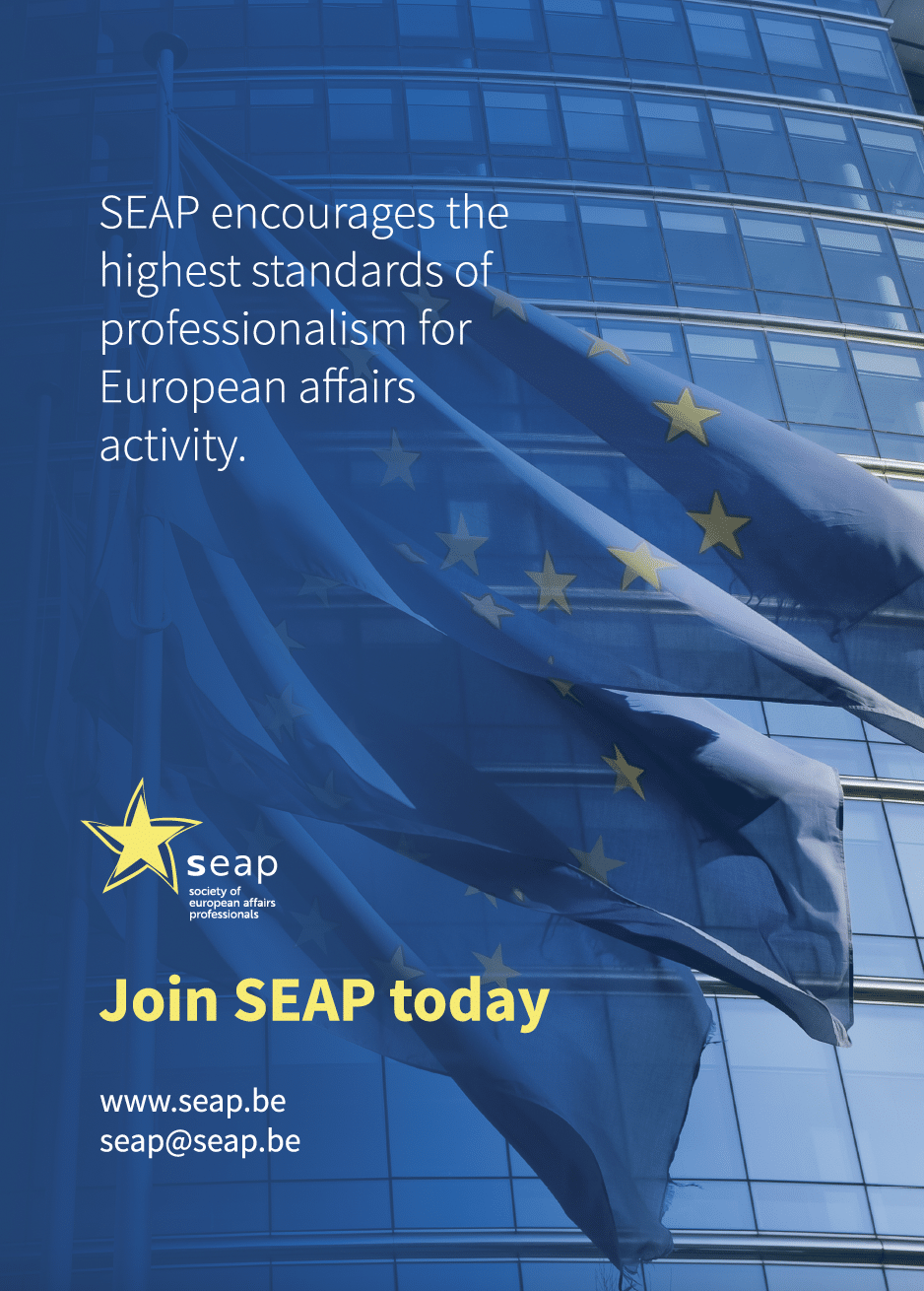Foreword from Emma Brown and Marco Baldoli, President and Vice President of SEAP
Charting a New Course for Better Regulation
As Brussels continues to navigate a fast-evolving political and regulatory landscape, it’s never been more important to reflect on the principles that underpin smart, effective policymaking. Better Regulation — once the gold standard for evidence-based and transparent decision-making in the EU — remains a vital tool not only for good governance, but for reinforcing trust between institutions and citizens.
The European Union’s Better Regulation agenda has long stood as an ambitious framework designed to ensure that every proposal is grounded in rigorous analysis, open stakeholder engagement and democratic accountability. Over the past decade, impact assessments have become a familiar sight in Brussels and a cornerstone of EU policymaking. Consultations have drawn input from civil society and industry alike. Ex‑post evaluations have shed light and helped track real-world outcomes. Yet, as the Union confronts an ever more challenging and complex policy landscape — from digital transformation, climate imperatives to shifting geopolitical realities — the original promise of Better Regulation has begun to show signs of strain.
With the reform of the Transparency Regulation on the horizon, this is a timely opportunity to reinforce and renew the original promise of Better Regulation. This is a chance to strengthen the foundations of the EU lawmaking system so it remains both legitimate and effective.
At the heart of any solid regulatory framework lies independent scrutiny and transparency. The Regulatory Scrutiny Board (RSB), charged with ensuring the quality of impact assessments, embodies this principle. However to fully deliver on its mission, the RSB must be granted genuine functional and operational autonomy. Transparent appointment procedures, fixed terms for Board members and a budget shielded from political priorities would keep its work impartial. Equally important is equipping the Board with the expert resources necessary to tackle a wide range of proposals. From environmental economics to digital policy, the RSB’s mandate demands multidisciplinary expertise. Investing in additional staff and specialist skills would not only sharpen the quality of analysis but also help deliver faster, more informed reviews.
It is all about timing, including impact assessments. All too often, assessments are released only when draft legislative texts are close to final—by which point negotiating positions have hardened and political horse‑trading has already begun. Decoupling the publication of impact assessments from the draft legislative acts would invite earlier and more meaningful engagement, grounded in evidence. This would enable all stakeholders— whether NGOs, businesses or academic experts—to contribute constructively before options are locked in. This shift would reduce the perception that decisions are “pre‑cooked,” allowing for a more inclusive, genuine contest of ideas and better alignment between evidence and political ambition.
Transparency is not solely a matter of when documents are published; it is also about how evidence is handled and used. Today, impact assessments can appear as tidy add‑ons to already made political decisions, rather than the engine that drives them.
A shift in mindset is needed: evidence should guide policy, not just justify it. By making data collection methods and sources openly accessible, the Commission can build confidence in the process. A publicly available, easy-to-follow “evidence path” tracing how specific analyses — such as cost‑benefit studies or environmental models — influence legislative outcomes would enhance clarity and accountability. To guard against superficial use of studies, introducing minimum standards for evidence in initiatives with measurable socio-economic effects would further strengthen the integrity of policymaking.
Closing the procedural loopholes is the final step. Aligned with the Commission’s Omnibus initiatives, the significant changes during institutional negotiations need to be evaluated. With often far-reaching consequences without being subject to impact assessments, these amendments can be hugely impactful. Similarly, strategic delegated acts — often loaded with politically sensitive measures — slip through without the same checks. This leads to a two‑tier system that hurts both openness and accountability. To stop major decisions from slipping through unnoticed, every major change during interinstitutional negotiations should come with a proper impact assessment. Likewise, important delegated acts should get a quick but thorough check, ensuring consistent checks and greater coherence regardless of the legislative route.
These changes go beyond bureaucratic tweaks; they are foundational improvements. They are about restoring trust between EU institutions and Europeans. Better Regulation is not about red tape and process choreography. It is about designing smarter, fairer policies that command public trust. The reform of the Transparency Regulation presents a rare chance to align openness and Better Regulation together in a seamless package. By strengthening the independence and capacity of the RSB, encouraging earlier and more open debates, embedding an evidence‑first culture and extending scrutiny across all significant legislative decisions, the EU can lead by example. At a time of huge challenges, we need to work together to invest in the EU’s reputation, strength and ability to deliver for its citizens now and in the future.



